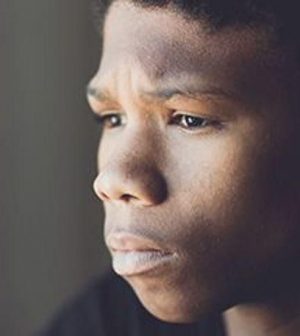- 10 Strategies to Overcome Insomnia
- Could Artificial Sweeteners Be Aging the Brain Faster?
- Techniques for Soothing Your Nervous System
- Does the Water in Your House Smell Funny? Here’s Why
- Can a Daily Dose of Apple Cider Vinegar Actually Aid Weight Loss?
- 6 Health Beverages That Can Actually Spike Your Blood Sugar
- Treatment Options for Social Anxiety Disorder
- Understanding the Connection Between Anxiety and Depression
- How Daily Prunes Can Influence Cholesterol and Inflammation
- When to Take B12 for Better Absorption and Energy
Over 140,000 U.S. Children Have Lost a Caregiver to COVID-19

It is an excruciating statistic: One in every four COVID-19 deaths in the United States leaves a child without a parent or other caregiver, researchers report.
The analysis of data shows that from April 2020 to July 2021, more than 120,000 children under the age of 18 lost a primary caregiver (a parent or grandparent who provided housing, basic needs and care), and about 22,000 lost a secondary caregiver (grandparents who provided housing, but not most basic needs).
“Children facing orphanhood as a result of COVID is a hidden, global pandemic that has sadly not spared the United States,” study author Susan Hillis, a U.S. Centers for Disease Control and Prevention researcher, said in a U.S. National Institutes of Health news release.
Overall, about 1 in 500 children in the United States have become orphans or lost a grandparent caregiver to COVID-19, according to the study published Oct. 7 in the journal Pediatrics.
Children of racial and ethnic minorities accounted for 65% of youngsters who lost a primary caregiver to COVID-19, compared with 35% of white children, even though whites account for 61% of the U.S. population, and people of racial and ethnic minorities represent 39% of the population.
Orphanhood or the death of a primary caregiver due to COVID-19 was experienced by: 1 of every 168 American Indian/Alaska Native children, 1 of every 310 Black children, 1 of every 412 Hispanic children, 1 of every 612 Asian children, and 1 of every 753 white children.
Compared to white children, American Indian/Alaska Native children were 4.5 times more likely to lose a parent or grandparent caregiver, Black children were 2.4 times more likely, and Hispanic children were 1.8 times more likely.
States with large populations — California, Texas and New York — had the highest overall numbers of children who lost primary caregivers to COVID-19.
The researchers also found significant racial/ethnic differences between states.
In New Mexico, Texas, and California, 49% to 67% of children who lost a primary caregiver were Hispanic. In Alabama, Louisiana and Mississippi, 45% to 57% of children who lost a primary caregiver were Black. American Indian/Alaska Native children who lost a primary caregiver were more common in South Dakota (55%), New Mexico (39%), Montana (38%), Oklahoma (23%), and Arizona (18%).
The fallout from losing a parent is significant for children: It is associated with mental health problems; fewer years of school; lower self-esteem; high-risk sexual behaviors; and increased risk of substance abuse, suicide, violence, sexual abuse and exploitation, the researchers noted.
“All of us — especially our children — will feel the serious immediate and long-term impact of this problem for generations to come. Addressing the loss that these children have experienced — and continue to experience — must be one of our top priorities, and it must be woven into all aspects of our emergency response, both now and in the post-pandemic future,” Hillis said.
“The magnitude of young people affected is a sobering reminder of the devastating impact of the past 18 months,” said study co-lead researcher Alexandra Blenkinsop, from Imperial College London. “These findings really highlight those children who have been left most vulnerable by the pandemic, and where additional resources should be directed.”
More information
The American Academy of Pediatrics has more on childhood grief.
SOURCE: U.S. National Institutes of Health, news release, Oct. 7, 2021
Source: HealthDay
Copyright © 2026 HealthDay. All rights reserved.










